- Resilient Republic Rising: Stay Informed with Comprehensive ghana news, Economic Forecasts & Community Stories.
- Economic Performance and Outlook
- Political Developments and Governance
- Regional Security and International Relations
- Social and Cultural Developments
- Challenges and Future Prospects
Resilient Republic Rising: Stay Informed with Comprehensive ghana news, Economic Forecasts & Community Stories.
Ghana, a nation brimming with potential, is increasingly capturing global attention. Understanding the current landscape of ghana news is crucial for investors, policymakers, and citizens alike. From economic shifts and political developments to vibrant cultural stories and community initiatives, staying informed about Ghana offers insights into a dynamic West African nation undergoing significant transformation. This article delves into the complexities of Ghana, providing a comprehensive overview of its recent happenings, economic forecasts, and everyday life, aiming to present a nuanced and insightful perspective.
Economic Performance and Outlook
Ghana’s economy, historically reliant on cocoa, gold, and increasingly, oil, faces both challenges and opportunities. Recent economic performances have been marked by fluctuations in commodity prices and the impacts of global economic trends. The government is actively pursuing policies to diversify the economy, promote industrialization, and attract foreign investment. These efforts include initiatives focused on strengthening the manufacturing sector, enhancing agricultural productivity, and developing the country’s infrastructure, especially in transportation and energy. However, debt sustainability remains a key concern, demanding prudent fiscal management and strategic borrowing.
The financial sector is undergoing reforms to improve stability and access to credit, particularly for small and medium-sized enterprises. Digital financial inclusion is also gaining momentum, with mobile money and fintech playing an increasing role in the economy. Here is a summarized overview of some key economic indicators:
| GDP Growth Rate (%) | 3.4 | 2.6 | 4.3 |
| Inflation Rate (%) | 31.7 | 27.0 | 15.0 |
| Debt-to-GDP Ratio (%) | 85.0 | 88.0 | 82.0 |
Political Developments and Governance
Ghana is often lauded for its stable democratic system, a beacon of political stability in a region grappling with governance challenges. However, recent political discourse has been marked by debates over economic policy, corruption, and social issues. The two major political parties, the New Patriotic Party (NPP) and the National Democratic Congress (NDC), continue to shape the political landscape. The upcoming elections are expected to be closely contested, with voters focused on issues such as unemployment, cost of living, and infrastructure development.
Strengthening institutional governance and promoting transparency are vital for sustaining democratic gains. These include efforts to enhance the independence of the judiciary, strengthen anti-corruption mechanisms, and ensure free and fair elections. Civil society organizations are playing an increasingly important role in advocating for accountability and good governance. Key areas of focus are on promoting citizen participation and ensuring that government policies are responsive to the needs of the population. The following are some of the critical governance indicators that show progress, but require constant attention:
- Rule of Law Index: Steady improvement, indicating enhanced protection of property rights and contract enforcement.
- Corruption Perception Index: Moderate score, highlighting ongoing challenges related to corruption.
- Press Freedom Index: Relatively high ranking, reflecting a vibrant media landscape.
- Political Stability and Absence of Violence/Terrorism: Generally stable, though ethnic and regional tensions require careful management.
Regional Security and International Relations
Ghana maintains strong relationships with its West African neighbors, as well as with key international partners, including the United States, the European Union, and the United Kingdom. It plays an active role in regional organizations such as the Economic Community of West African States (ECOWAS), working to promote peace and security. Concerns regarding cross-border crime, terrorism, and illegal migration are on the rise, requiring coordinated efforts to address these challenges effectively. Ghana is also actively involved in international initiatives to combat climate change and promote sustainable development. The country’s commitment to multilateralism is evident in its engagement the United Nations and other global institutions.
The nation has also been investing in its military and security infrastructure to better safeguard its borders and respond to emerging threats. Regional cooperation is seen as essential for addressing these challenges, necessitating collaboration on intelligence sharing, joint security operations, and border management. Promoting stability in the Sahel region, which borders Ghana, is a key priority. Political unrest in neighboring countries poses a security risk and could lead to increased refugee flows and the spread of extremism.
Ghana’s foreign policy is guided by principles of peaceful coexistence, non-interference, and mutual respect. The country is actively seeking to diversify its economic partnerships and attract investment from new sources, including emerging economies. It is also working to strengthen its diplomatic ties and promote its interests on the global stage. However, maintaining a delicate balance between national interests and international obligations remains a key challenge for policymakers.
Social and Cultural Developments
Ghanaian society is characterized by its rich cultural heritage, diverse ethnic groups, and strong communal values. Traditional festivals, music, dance, and art play an essential role in everyday life. The country is also experiencing rapid urbanization, with a growing number of people migrating to cities in search of economic opportunities. This trend presents challenges related to infrastructure development, housing, and social services. Efforts are underway to promote inclusive urban planning and ensure that the benefits of urbanization are shared by all.
Education is a priority for the government, with initiatives aimed at improving access to quality education at all levels. Challenges remain, including issues related to teacher training, infrastructure, and curriculum development. Healthcare access is also being improved through investments in hospitals, clinics, and public health programs. The government is working to strengthen the national health insurance scheme and ensure that healthcare is affordable and accessible to all citizens.
- Population Growth: Increasing at a rate of approximately 2.1 % per year, posing challenges for infrastructure and resources.
- Urbanization Rate: Approximately 56% of the population lives in urban areas, creating demand for housing and services.
- Literacy Rate: Around 74 % of the adult population is literate, showing improvements in educational attainment.
- Life Expectancy: Increasing steadily, currently around 64 years, reflecting improvements in healthcare access.
Challenges and Future Prospects
Despite its progress, Ghana faces significant challenges, including macroeconomic vulnerabilities, income inequality, environmental degradation, and skills gaps. Addressing these challenges is crucial for ensuring sustainable and inclusive development. The government needs to implement prudent economic policies, invest in infrastructure, promote diversification, and enhance human capital. Strengthening governance, promoting transparency, and combating corruption are also essential for building a more resilient and prosperous nation.
Ghana possesses immense potential for growth and development. Its strategic location, abundant natural resources, and youthful population offer a solid foundation for economic success. Leveraging these assets effectively through sound policy-making and attracting investment will be key to unlocking Ghana’s full potential. Investing in renewable energy sources, promoting sustainable agriculture, and developing the digital economy will be critical for driving long-term growth and creating opportunities for all Ghanaians.
| Debt Sustainability | Fiscal consolidation, debt restructuring, revenue mobilization | Short – Medium Term |
| Unemployment | Skills development, entrepreneurship promotion, job creation initiatives | Medium – Long Term |
| Infrastructure Deficit | Strategic investment in transportation, energy, and digital infrastructure | Long Term |


